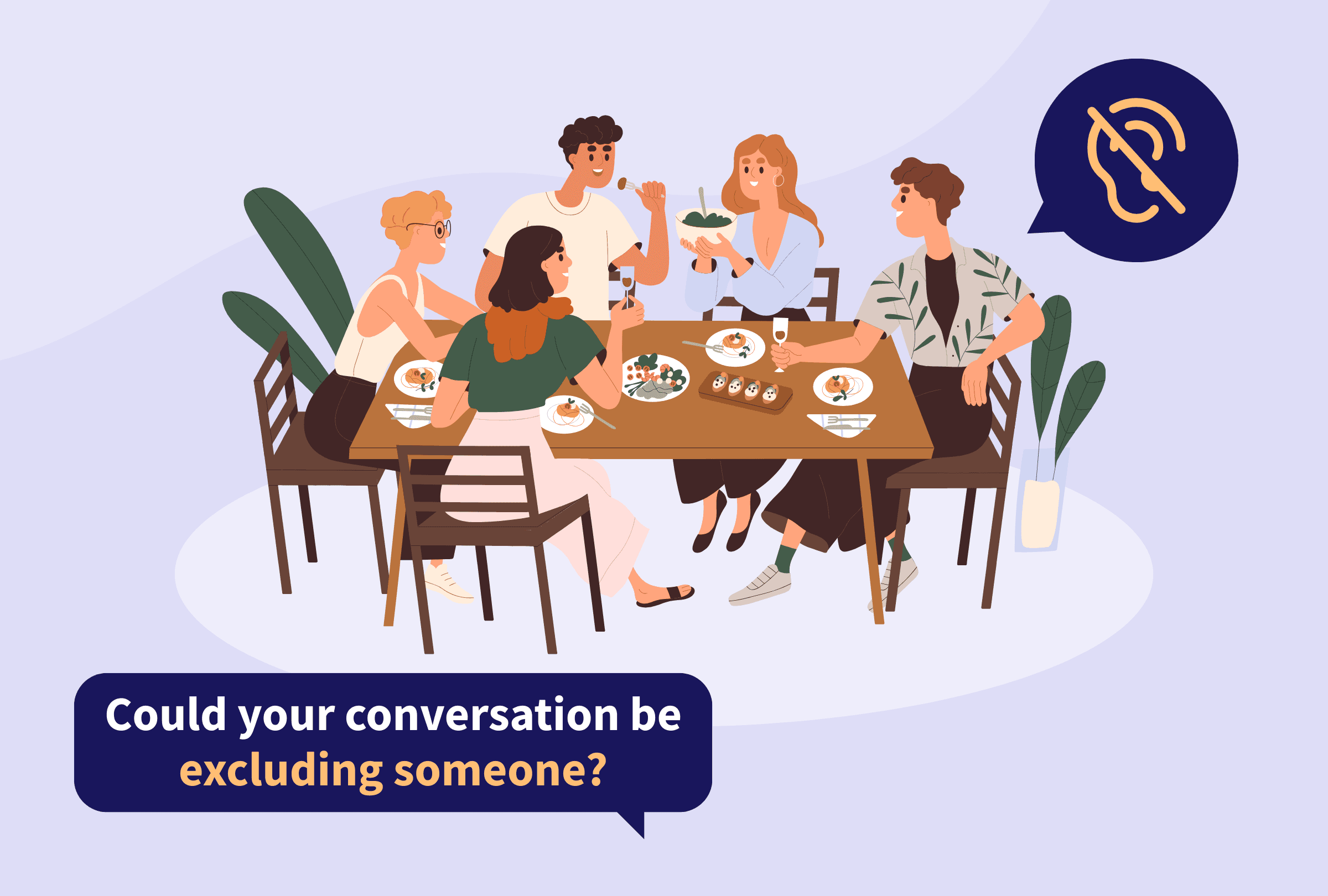What is Dinner Table Syndrome?
Sociability
•
Oct 22, 2025



Could your conversation be unintentionally excluding someone? Dinner Table Syndrome is a common but often overlooked experience for Deaf or Hard of Hearing people. Understanding it and taking small steps can make a huge difference in making social spaces more inclusive.
What is Dinner Table Syndrome
Dinner Table Syndrome happens when Deaf or Hard of Hearing people are unintentionally excluded from group conversations. It is not limited to the dinner table, it can happen anywhere talk moves quickly, including restaurants, classrooms, cars, or even during casual coffee catch-ups.
Why It Happens
There are several reasons why someone might be left out of a conversation:
Multiple people talking at the same time
Sudden topic changes
Poor lighting that makes lip-reading difficult
Background noise that interferes with hearing
Communication styles like interruptions or visual cues that don’t translate
How It Feels
Being excluded in conversation is more than a small inconvenience. It can lead to:
Loneliness and isolation
Frustration and exhaustion, sometimes called communication fatigue
Low self-esteem
A sense of invisibility even while physically present
How to Be More Inclusive During Conversations
There are practical steps you can take to make group conversations more accessible:
Speak one at a time and stay in good lighting so lip-reading is easier
Reduce background noise wherever possible
Use sign language, captions, or text-based communication when available
Pause and recap when conversation topics change
Gently remind the group if someone is being left out
Round Tables Make a Difference
Round tables make it easier for everyone to see each other, lip-read, and join the conversation. To support this, Sociability now has a ‘Round Tables’ tag on the app, helping you find spaces where conversations can be more inclusive!
Being aware of Dinner Table Syndrome and taking a few simple steps can make conversations more welcoming for everyone. With small adjustments, it is possible to create a space where everyone feels more comfortable, engaged, and part of the discussion.
Planning a trip out and want to find accessible cafés, bars, and restaurants nearby? Download Sociability to search thousands of places and filter for your access needs in seconds.


